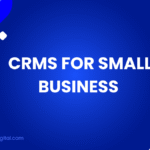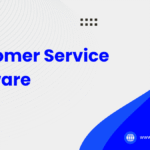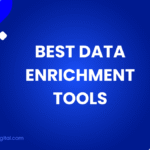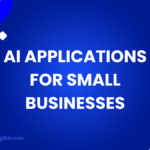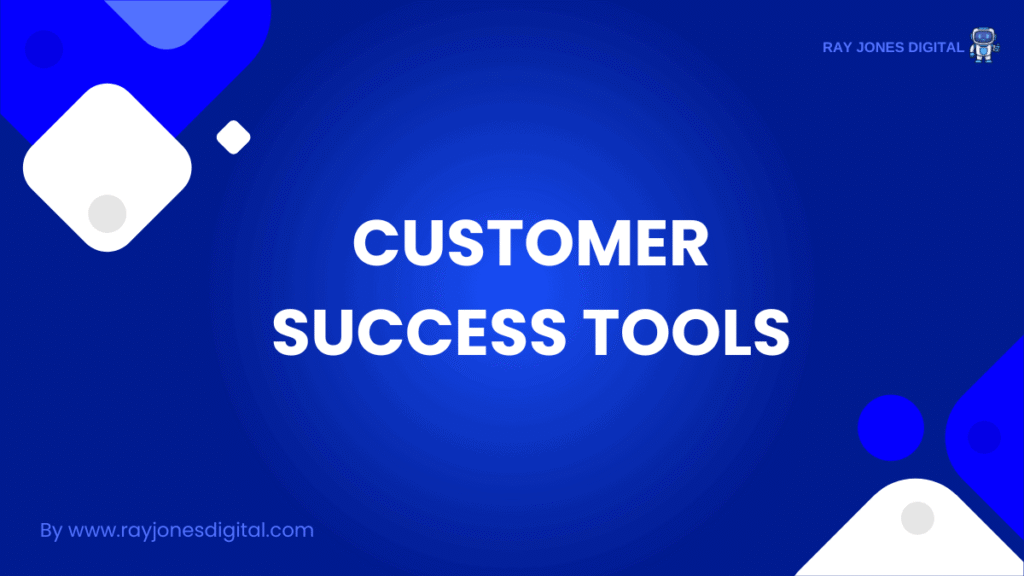
Customer success has evolved from a support function into a strategic business driver. Companies with dedicated customer success tools retain 91% more customers than those without. The right tools can transform how you nurture relationships, prevent churn, and drive expansion revenue.
Modern customer success platforms have moved beyond simple ticketing systems. They now provide predictive analytics, automated workflows, and comprehensive health scoring that helps teams identify at-risk accounts before problems escalate. These tools integrate seamlessly with your existing tech stack, providing a unified view of the customer journey.
This comprehensive guide examines the most powerful customer success tools available for 2026. We’ll explore platforms that excel at automation, provide actionable insights, and help teams scale their efforts without losing the personal touch that drives customer loyalty.
Why Customer Success Tools Are Essential for Modern Businesses
The average SaaS company loses 5-7% of its customers every month. This churn rate compounds quickly, making customer retention more valuable than acquisition. Customer success tools address this challenge by providing early warning systems, automated engagement workflows, and data-driven insights that help teams act proactively rather than reactively.
The Evolution of Customer Success Technology
Customer success tools have transformed dramatically over the past few years. Early platforms focused primarily on support ticket management. Today’s solutions leverage artificial intelligence, predictive analytics, and sophisticated automation to identify opportunities and risks before they impact revenue.
Predictive Customer Health Scoring
Modern platforms analyse dozens of data points to create dynamic health scores. These scores consider product usage patterns, support ticket frequency, billing history, and engagement levels to predict churn risk with remarkable accuracy.
Automated Engagement Workflows
Advanced tools create personalised engagement sequences based on customer behaviour. These workflows can trigger email campaigns, in-app messages, or sales outreach automatically when specific conditions are met.
Revenue Impact Tracking
The best customer success tools directly connect retention activities to revenue outcomes. Teams can track how specific interventions affect expansion revenue, renewal rates, and customer lifetime value.
Essential Features to Look For
Comprehensive Customer Health Monitoring
Effective customer success tools provide real-time visibility into account health across multiple dimensions. Look for platforms that combine usage analytics, support metrics, and business outcomes into unified health scores.
Multi-Dimensional Scoring
The best tools consider product adoption, user engagement, support interactions, billing history, and expansion opportunities when calculating health scores. Single-metric approaches often miss critical warning signs.
Automated Risk Detection
Advanced platforms identify at-risk accounts automatically using machine learning algorithms. These systems can detect subtle patterns that human analysts might miss, providing earlier warnings about potential churn.
Workflow Automation and Orchestration
Customer success teams manage hundreds or thousands of accounts. Automation capabilities help teams scale their efforts while maintaining personalised engagement with each customer.
Playbook Automation
Look for tools that can execute complex playbooks automatically. These might include onboarding sequences, renewal campaigns, or expansion opportunity workflows that adapt based on customer behaviour.
Cross-Platform Integration
The best customer success tools integrate seamlessly with your CRM, support platform, billing system, and product analytics. This integration provides a complete view of the customer relationship.
The 6 Best Customer Success Tools for 2026
1. Gainsight
Gainsight remains the gold standard for enterprise customer success management. Their platform combines sophisticated analytics with powerful automation capabilities, making it ideal for companies managing complex customer relationships.
Key Features:
- Advanced customer health scoring with 360-degree account views
- Automated playbook execution for onboarding, renewal, and expansion
- Comprehensive reporting and analytics dashboard
- Native integrations with major CRM and support platforms
Automation Capabilities:
- Risk-based automated alerts and escalation workflows
- Personalised email campaigns triggered by behaviour changes
- Automatic task assignment based on account health changes
- Predictive analytics for renewal and expansion opportunities
Pricing: Custom pricing starting from £75 per user per month for enterprise plans.
Best For: Enterprise organisations with complex customer success operations requiring sophisticated analytics and automation.
2. ChurnZero
ChurnZero excels at real-time customer health monitoring and automated engagement. Their platform provides exceptional visibility into product usage patterns and customer behaviour changes.
Key Features:
- Real-time usage tracking and behaviour analysis
- Automated customer journey mapping and segmentation
- In-app messaging and engagement campaigns
- Comprehensive customer success metrics and reporting
Automation Capabilities:
- Behaviour-triggered engagement sequences
- Automated onboarding and adoption campaigns
- Risk-based alert systems with automatic escalation
- Personalised content delivery based on usage patterns
Pricing: Plans start from £25 per user per month, with enterprise options available.
Best For: SaaS companies requiring detailed usage analytics and automated customer engagement.
3. Totango
Totango combines customer success management with powerful segmentation capabilities. Their platform excels at creating targeted campaigns for different customer segments whilst maintaining operational efficiency.
Key Features:
- Advanced customer segmentation and targeting
- Multi-channel campaign management
- Comprehensive health scoring and risk assessment
- Integration hub connecting 100+ business applications
Automation Capabilities:
- Segment-based automated campaigns
- Lifecycle stage progression workflows
- Automated health score calculations with custom weighting
- Cross-functional team collaboration automation
Pricing: Starter plans begin at £15 per user per month, with advanced features in higher tiers.
Best For: Growing SaaS businesses requiring sophisticated segmentation and campaign management.
4. Planhat
Planhat offers a comprehensive customer success platform with strong emphasis on data integration and custom workflows. Their flexible approach works well for companies with unique business models or complex customer journeys.
Key Features:
- Flexible data model accommodating various business types
- Custom workflow builder for unique business processes
- Advanced analytics and reporting capabilities
- Revenue tracking and expansion opportunity identification
Automation Capabilities:
- Custom workflow automation for any business process
- Automated data synchronisation across platforms
- Intelligent alert systems with configurable triggers
- Automated report generation and distribution
Pricing: Custom pricing based on requirements, typically starting around £30 per user per month.
Best For: Companies with unique business models requiring flexible, customisable customer success workflows.
5. ClientSuccess
ClientSuccess focuses on simplicity and ease of use whilst providing powerful customer success capabilities. Their platform excels at making customer success accessible to teams without extensive technical expertise.
Key Features:
- Intuitive interface with minimal learning curve
- Pulse surveys and customer feedback collection
- Automated health scoring and risk identification
- Success planning and goal tracking
Automation Capabilities:
- Automated pulse survey deployment and analysis
- Risk-based notification and escalation systems
- Automated success plan creation and tracking
- Integration-driven data updates and synchronisation
Pricing: Plans start from £20 per user per month, with volume discounts available.
Best For: Small to medium businesses seeking user-friendly customer success tools without sacrificing functionality.
6. Amity
Amity provides a modern approach to customer success with strong emphasis on community building and customer advocacy. Their platform combines traditional customer success features with community management capabilities.
Key Features:
- Community platform integration for customer engagement
- Advocacy programme management and tracking
- Customer feedback and feature request management
- Social proof and testimonial collection automation
Automation Capabilities:
- Automated community engagement and moderation
- Advocacy opportunity identification and outreach
- Feedback collection and categorisation workflows
- Social proof generation and distribution
Pricing: Pricing available on request, with plans tailored to community size and engagement levels.
Best For: Companies building strong customer communities and advocacy programmes alongside traditional customer success initiatives.
Advanced Implementation Strategies
Data Integration and Unified Customer Views
The most successful customer success implementations create unified customer views by integrating data from multiple sources. These comprehensive profiles include product usage, support interactions, billing history, and business outcomes.
Cross-Platform Data Synchronisation
Ensure your customer success platform receives real-time data from your CRM, support system, billing platform, and product analytics. This integration provides complete visibility into customer relationships.
Custom Data Points and Metrics
Configure your platform to track metrics specific to your business model. This might include feature adoption rates, integration usage, or business outcome metrics that correlate with customer success.
Automated Workflow Orchestration
Advanced customer success teams create sophisticated workflows that coordinate activities across multiple systems and team members. These workflows ensure consistent execution of success strategies at scale.
Multi-Stage Customer Journeys
Design workflows that guide customers through their entire lifecycle with your product. These journeys should include onboarding, adoption, expansion, and renewal phases with automated touchpoints and interventions.
Cross-Functional Team Coordination
Create workflows that coordinate activities between customer success, sales, support, and product teams. Automated handoffs ensure nothing falls through the cracks during critical customer interactions.
Predictive Analytics and Proactive Intervention
The most sophisticated customer success programmes use predictive analytics to identify opportunities and risks before they impact revenue. These systems enable proactive rather than reactive customer management.
Churn Prediction Models
Implement machine learning models that analyse customer behaviour patterns to predict churn risk. These models should consider usage trends, support ticket patterns, and engagement levels to provide early warnings.
Expansion Opportunity Identification
Use data analytics to identify customers most likely to expand their usage or upgrade their plans. Automated scoring systems can prioritise these opportunities for your sales team.
Measuring Success and ROI
Key Performance Indicators
Effective customer success tools provide comprehensive reporting on metrics that directly impact business outcomes. Focus on metrics that demonstrate the financial impact of your customer success investments.
Revenue Impact Metrics
Track how customer success activities affect key revenue metrics:
- Net Revenue Retention (NRR)
- Customer Lifetime Value (CLV)
- Expansion revenue from existing customers
- Renewal rates across different customer segments
Operational Efficiency Metrics
Monitor how tools improve team productivity and efficiency:
- Time to resolution for customer issues
- Number of customers managed per success manager
- Automation rate for routine tasks
- Customer satisfaction scores and feedback ratings
Continuous Optimisation
The best customer success programmes continuously evolve based on data and feedback. Regular analysis of tool performance and customer outcomes helps identify improvement opportunities.
A/B Testing Customer Interventions
Test different approaches to customer engagement, onboarding, and retention to identify the most effective strategies. Use your customer success platform’s analytics to measure the impact of these experiments.
Feedback Loop Implementation
Create systems that capture customer feedback and translate it into product improvements and process optimisations. This feedback should inform both your customer success strategies and product development priorities.
Making the Right Choice for Your Business
Selecting the right customer success tool depends on your business size, complexity, and specific requirements. Consider these factors when evaluating options:
Business Size and Complexity
Large enterprises with complex customer relationships typically benefit from comprehensive platforms like Gainsight or Planhat. Smaller businesses might find better value in simpler tools like ClientSuccess or ChurnZero.

I am Ray Jones Digital
My current occupations: a Digital Marketer, Local SEO expert, Link Builder, and WordPress SEO specialist. Shopify SEO, Ecommerce Store Management, and HTML & WordPress Developer I have been practicing the above mentioned services for more than 10 years now As an SEO expert working with your ongoing projects.
